calsfoundation@cals.org
Caraway (Craighead County)
| Latitude and Longitude: | 35°45’29″N 090°19’20″W |
| Elevation: | 225 feet |
| Area: | 2.30 square miles (2020 Census) |
| Population: | 1,133 (2020 Census) |
| Incorporation Date: | September 14, 1923 |
Historical Population as per the U.S. Census:
|
1810 |
1820 |
1830 |
1840 |
1850 |
1860 |
1870 |
1880 |
1890 |
1900 |
|
– |
– |
– |
– |
– |
– |
– |
– |
– |
– |
|
1910 |
1920 |
1930 |
1940 |
1950 |
1960 |
1970 |
1980 |
1990 |
2000 |
|
– |
– |
425 |
477 |
970 |
821 |
952 |
1,165 |
1,178 |
1,349 |
|
2010 |
2020 |
|
|
|
|
|
|
|
|
|
1,279 |
1,133 |
|
|
|
|
|
|
|
|
Caraway is a small farming community located in Craighead County in the northeast section of the state. The community is representative of other towns in this area—forged from the timber industry, sustained for many years by farming, fiercely holding onto its past through reunions and festivals, and trying to survive and retain its identity. Caraway is one of several communities within a region referred to collectively as Buffalo Island.
The small city of Caraway was one of the last to incorporate in northeast Arkansas. Initially known as White Switch, it began as a lumber camp about 1912. The abundance of timber attracted the Chicago Mill and Lumber Company to buy vast tracts of land. The huge northern company drew large numbers of workers to cut the timber and ship it to the main mill at Blytheville (Mississippi County). During that decade, the Blytheville, Leachville and Arkansas Southern (BL&AS) railroad built a spur line to carry timber from Caraway to Blytheville; the train backed into Caraway on the one-way line and went forward back to Blytheville. A stave mill at Caraway provided more jobs for workers who migrated to the area. After the timber was removed, rich alluvial farmland remained. This brought in more men and women searching for productive land to farm and raise families.
Caraway got its first post office on September 28, 1916, with Joseph Ewing Johnston as postmaster. Incorporated in 1923, the town was named for U.S. Senator Thaddeus Caraway of nearby Jonesboro (Craighead County), the most popular man in the area. Senator Caraway’s wife, Hattie Caraway, took over his responsibilities when he died unexpectedly, becoming the first woman elected to the U.S. Senate. She was successfully reelected for another term. Throughout its history, Caraway has been a place people “come home to.” The annual Fourth of July Picnic, which began in 1946, draws people from miles away; politicians often flock to the gathering.
Caraway has been the site of a number of notable businesses in northeast Arkansas. In the early 1910s, James H. “Boogerman” Jenkins ran the Jenkins Hotel and Boarding House; he later became deputy sheriff of the Caraway area in 1921 and was killed in a moonshine raid in 1928. J. R. David, Robert E. Lee Wilson (noted Mississippi County plantation owner), and Gene Thompson built the Caraway Ice Company in the late 1920s. Otto Cannon ran a “portable movie theater” and a dry goods store until the 1970s. For a while, Caraway was home to the Caraway Manufacturing Company, which was a dress-making factory. Latta’s Drug Store, the place for socializing in the 1950s and 1960s, complete with soda fountain and juke box, survives today as the Caraway Drug Company, a pharmacy and gift shop. However, an October 31, 2013, tornado damaged approximately fifty buildings in the town and resulted in the loss of several businesses.
Starting in 1955, Caraway was home to the All American Red Heads professional women’s basketball team, which played from 1936 to 1986, having moved to the town that was home to their new owner.
Caraway is a small, close-knit town held together by its churches, community organizations, and school spirit. It has always been known for its unwavering support for its sports teams. The Albert Payne Gymnasium is normally filled to capacity at each home game during basketball season. In the 1940s and 1950s, the town supported a semipro baseball team, the Caraway Redbirds, that usually hosted an exhibition game with the St. Louis Cardinals on their trip home after spring training. Several residents still remember watching Enos Slaughter, Jay Hanna “Dizzy” Dean, announcer Harry Caray, and others at the local ballpark. In the early 1960s, American Greetings opened a plant in Osceola, and many Caraway residents got jobs there; the company ran an old school bus to Caraway to pick up and deliver workers who did not have cars. Caraway was also home to one of Arkansas’s Congressional Medal of Honor recipients, U.S. Army Sergeant Nick Daniel Bacon, who was awarded the medal for his actions in Vietnam.
For additional information:
Blaylock, Revis. “Orwell Moore’s Red Heads Back in the Spotlight.” Northeast Arkansas Town Crier. September 30, 2004, p. 1.
Caraway, Arkansas. http://www.cityofcarawayar.org/ (accessed April 14, 2022).
“The History of Caraway, 1923–1998.” Project of the Riverside Talented and Gifted Class. Caraway, Arkansas, 1998.
Inman, Keith. “Caraway—Coming of Age.” Jonesboro Sun. March 27, 2005, p. 1C.
Donna Brewer Jackson
Manila, Arkansas
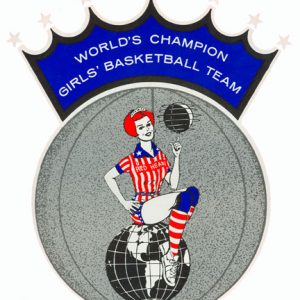 All American Red Heads Logo
All American Red Heads Logo 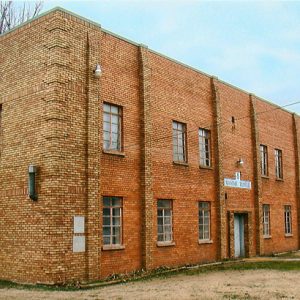 Caraway Masonic Lodge
Caraway Masonic Lodge 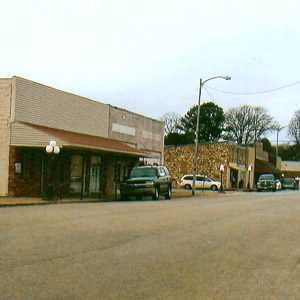 Caraway Street Scene
Caraway Street Scene 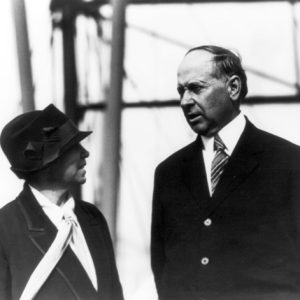 Hattie and Thaddeus Caraway
Hattie and Thaddeus Caraway 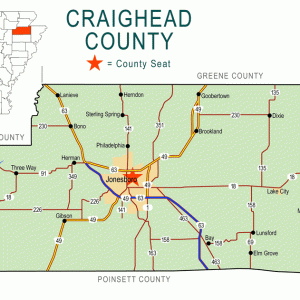 Craighead County Map
Craighead County Map 




Comments
No comments on this entry yet.